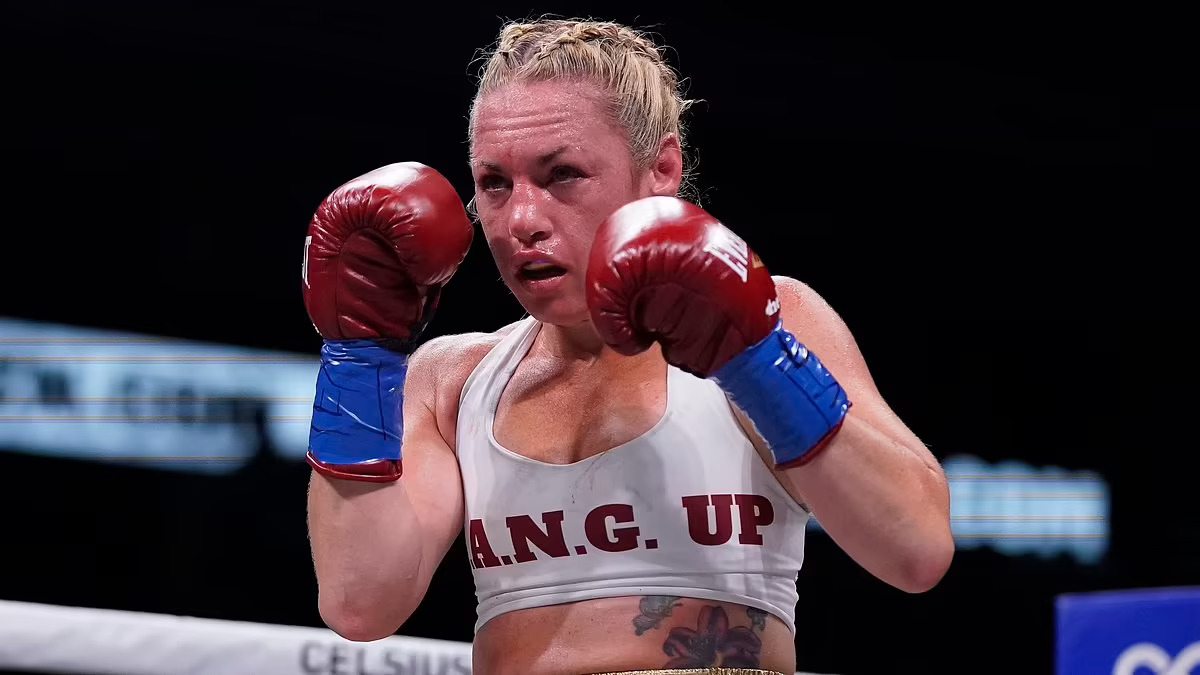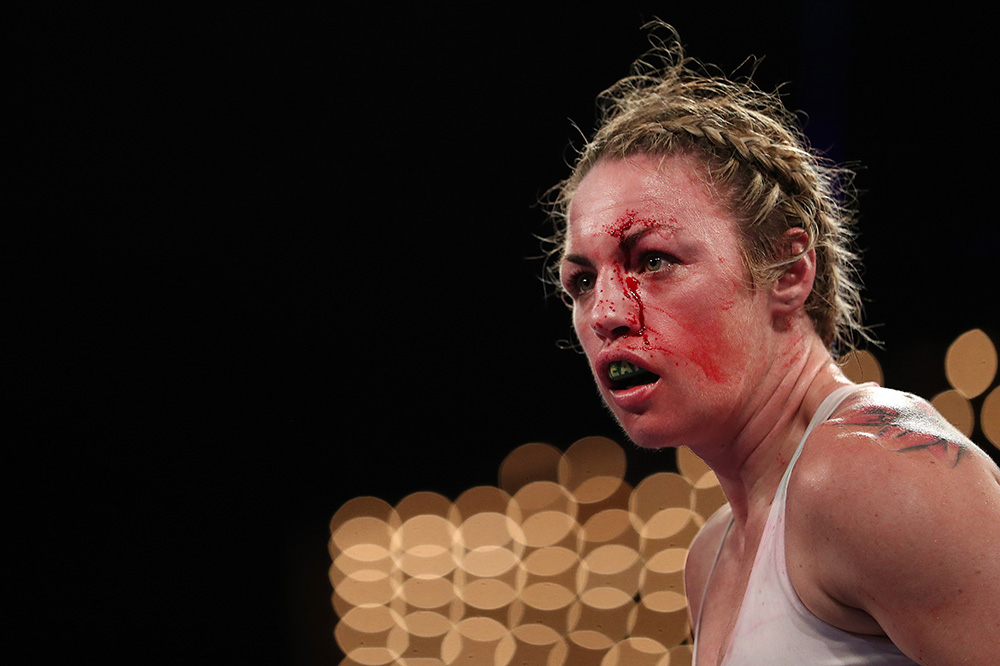Heather Hardy, scheduled to headline BKFC 61 against Christine Ferea, has withdrawn from the bout due to health concerns, marking a significant setback in her career.
In a poignant Instagram post, Hardy disclosed her struggles with vision impairment stemming from “too much brain damage” sustained during her fighting career. This revelation overshadows her anticipated BKFC debut and title challenge against Ferea for the women’s flyweight championship.
The alarming health issues began to surface after Hardy’s loss to Amanda Serrano in August, with blurred vision emerging as a troubling symptom. Initially attributing it to the rigors of competition, Hardy planned a recovery period of six to eight months. However, her condition deteriorated during training for the BKFC bout, exacerbating her physical and mental strain.

Despite grappling with financial pressures, Hardy persisted in her training regimen until the severity of her condition became undeniable. She described a harrowing experience of physical weakness and mental anguish concealed from her loved ones and coaches.
Following a visit to the doctor, Hardy received the sobering diagnosis of excessive concussions, which imperiled her vision and necessitated a cessation of activities prone to head trauma.
While Hardy refrained from explicitly declaring the end of her combat sports career, her closing statement on Instagram hinted at its inevitability. At 42, Hardy boasts an impressive boxing career, winning WBC and WBO featherweight titles and exploring mixed martial arts with Bellator.
Her decision to prioritize her health underscores the sobering reality of the toll exacted by combat sports, prompting reflection within the fighting community.
Hardy’s plight serves as a sobering reminder of the physical and emotional toll endured by athletes in combat sports. Her courage in confronting her health challenges and prioritizing her well-being resonates beyond the confines of the ring, sparking conversations about the importance of athlete welfare and the need for proactive measures to mitigate long-term health risks in combat sports.
